Empowering Midwives in Ghana Amid the COVID-19 Pandemic: Using Telemedicine to Deliver Life-saving Care to Expectant Mothers
Published on May 4, 2021
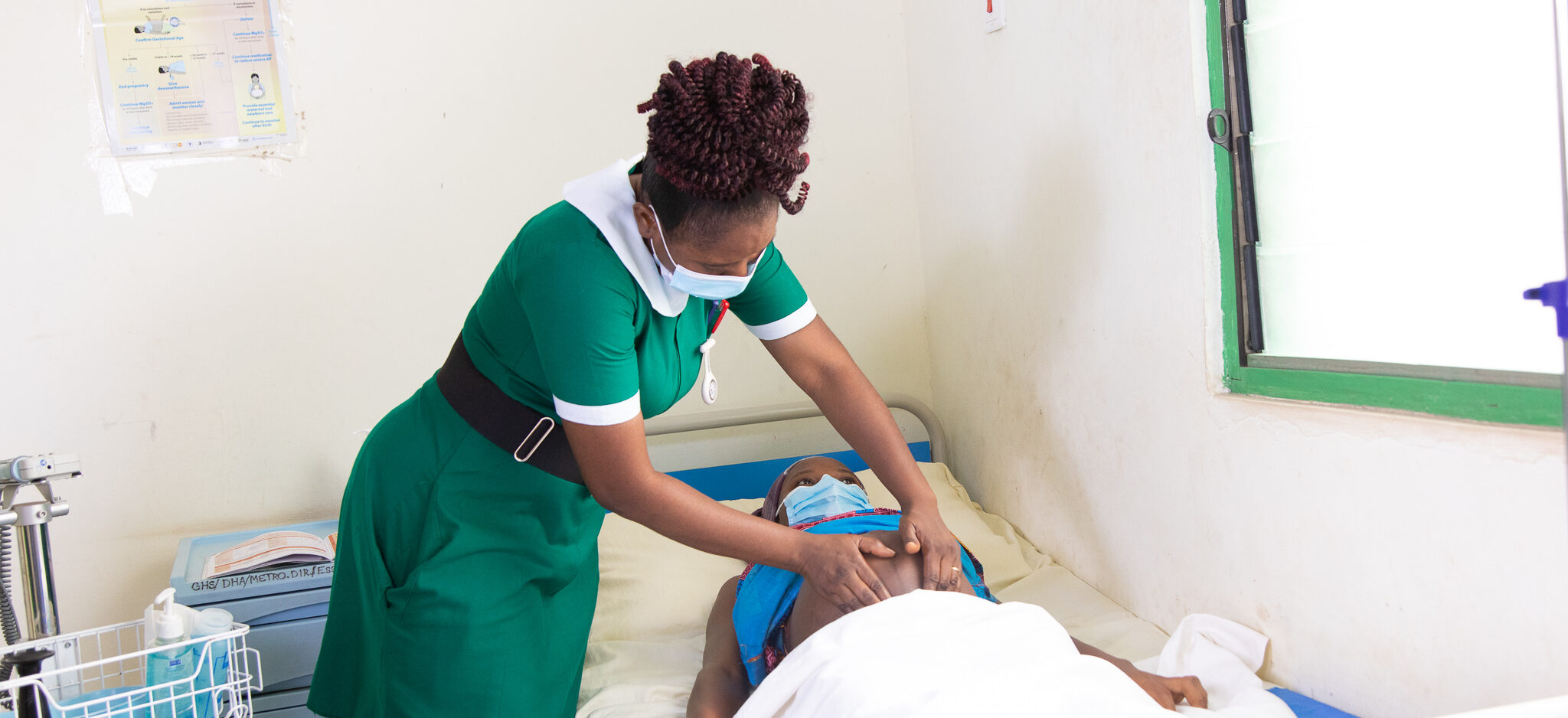
In Ghana, midwives are not just health workers, they are also mothers, sisters, neighbors, and trusted companions of women during pregnancy and childbirth. When a woman delivers in Essipon, a small community in Sekondi, Ghana, local midwife Juliana Brient is likely to know her name, where she lives, and how she is faring.
As a mother of two, as well as a midwife at the Essipon Health Center, Juliana is familiar with the experience of expectant, recently delivered, and breastfeeding mothers. However, the COVID-19 pandemic has presented Juliana and her team with a new challenge: maintaining essential health care services for expectant and new mothers during a pandemic.
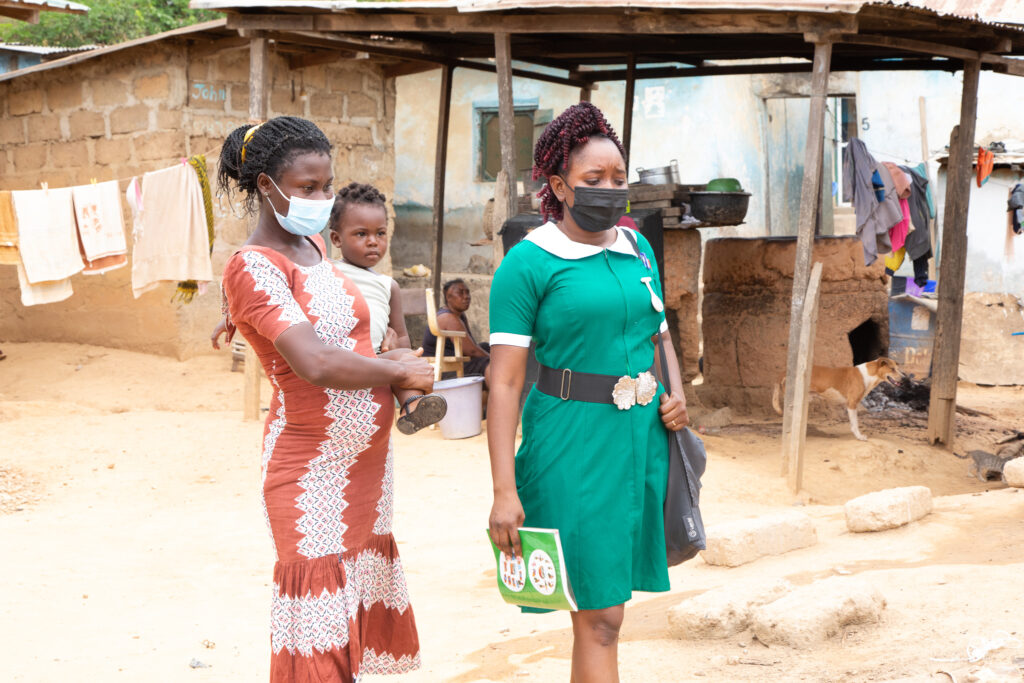
Ghana has one of the highest numbers of COVID-19 cases and deaths in West Africa, and the pandemic continues to disrupt every facet of everyday life while also testing the resilience of the country’s health system. Despite early and decisive measures to limit the spread of the virus, new and more contagious variants of the virus have plunged the country into a second wave, and health systems are now bracing for the third.1
At the forefront of the COVID-19 response are frontline health workers, including midwives such as Juliana, who go beyond the call of duty and risk their lives to provide essential services to their clients.
Before the pandemic, approximately 15 expectant and new mothers visited the Essipon Health Center every day for essential services, such as postnatal care. A few weeks after the country confirmed its first cases of COVID-19, Juliana was alarmed by the drop in the number of clients reporting to the facility for care, especially expectant mothers.
On most days, only three mothers reported for care—while on other days, no clients reported for care. Juliana was also concerned about providing care to clients without adequate knowledge of infection prevention and control (IPC) standards and access to appropriate personal protective equipment (PPE). She recalls, “I was very worried, especially when health workers were getting infected,” adding that “it was a very frightening time for most of us.”
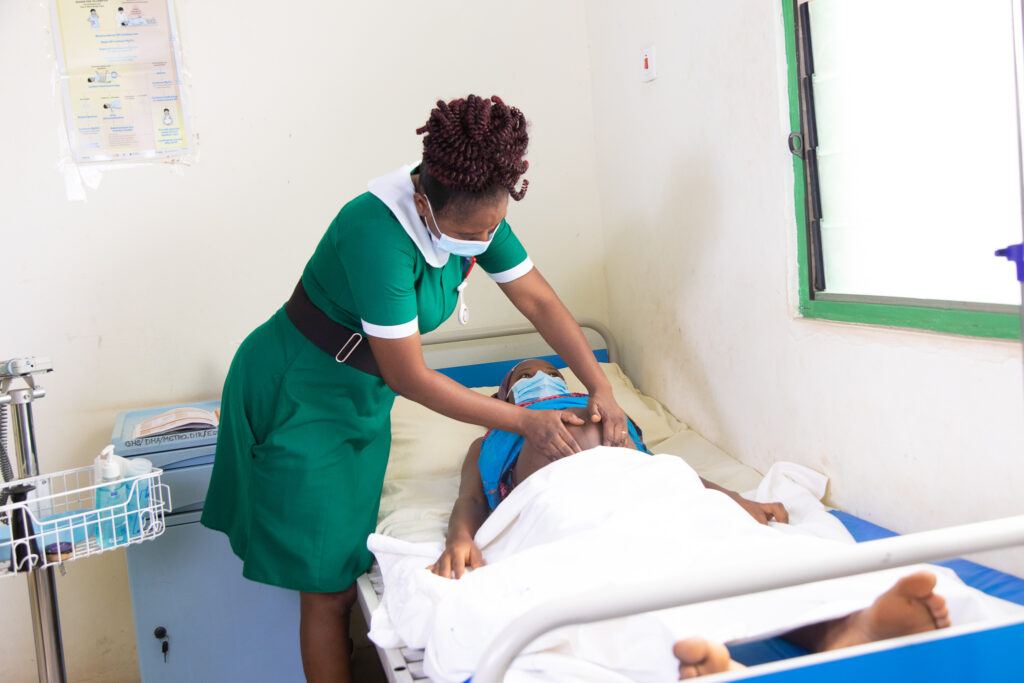
Enabling Midwives to Reach Their Full Potential
The Lancet’s recent Impact of Midwives Study2 highlights midwives’ role in improving quality, respectful care and reducing maternal and newborn deaths in low- and middle-income countries. However, to realize their full potential within communities, midwives need our support to operationalize and contextualize global strategies and guidance based on country needs and contexts.
Through MOMENTUM, the Ghana Health Service (GHS) provided training to health care workers to maintain essential primary health care services amid the pandemic. The three-month virtual training, organized through Zoom, reached 240 frontline health workers – including 44 midwives – in the Western Region of Ghana.
The project used the GHS eLearning platform to train 47 district IPC focal persons and supported them to train focal persons from selected hospitals and health centers in their respective districts. “We learned how to start COVID-19 screening and triaging at the health center, and how to identify clients with COVID-19 symptoms and refer them for testing,” says Juliana.
The five-module IPC training also aimed to teach frontline health workers to use PPE appropriately, including how to clean and disinfect surfaces and PPEs at the facility with chlorine concentration.
In addition, the project distributed PPE, including examination gloves, surgical masks, gowns, goggles, rubber boots, hand towels, alcohol-based hand rub, pedal-operated bins, and linen to all 47 health facilities.
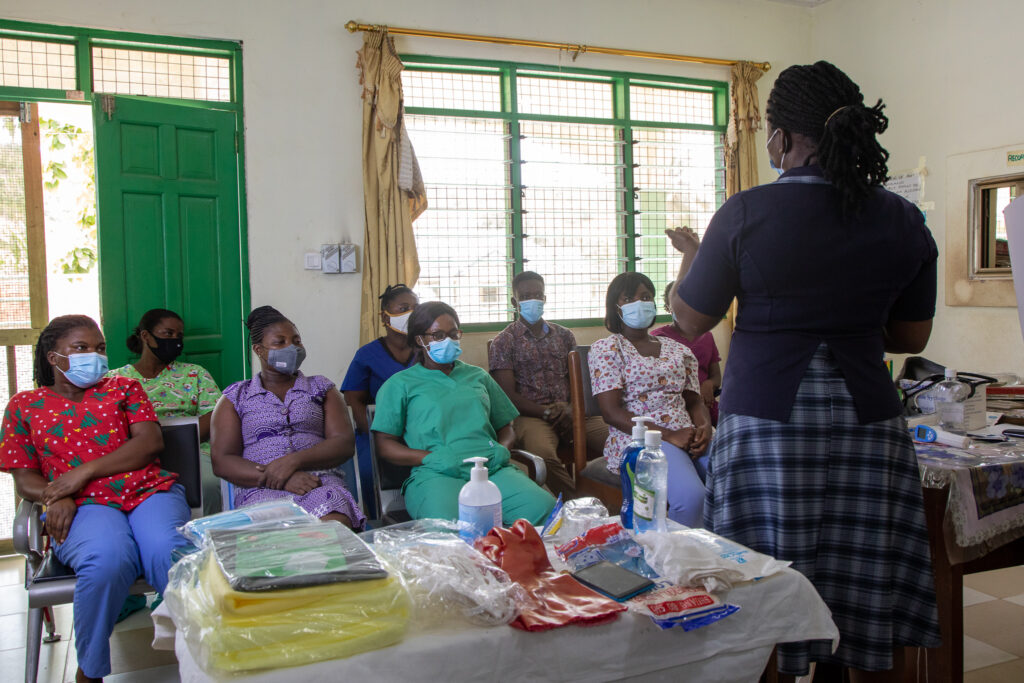
Since the initial training, Juliana and her team have organized refresher training at the health center to orient 27 staff members on IPC. All staff are now equipped to perform standard precautions, including proper handwashing, using alcohol hand rub and PPE, and cleaning surfaces in the health center. Essipon Health Center has two specialized water buckets, called Veronica buckets—a simple handwashing station that includes a bucket and a basin on top of a wooden stand— available for incoming clients to wash their hands with soap under running water, and a nurse screens clients at entry for COVID-19 symptoms.
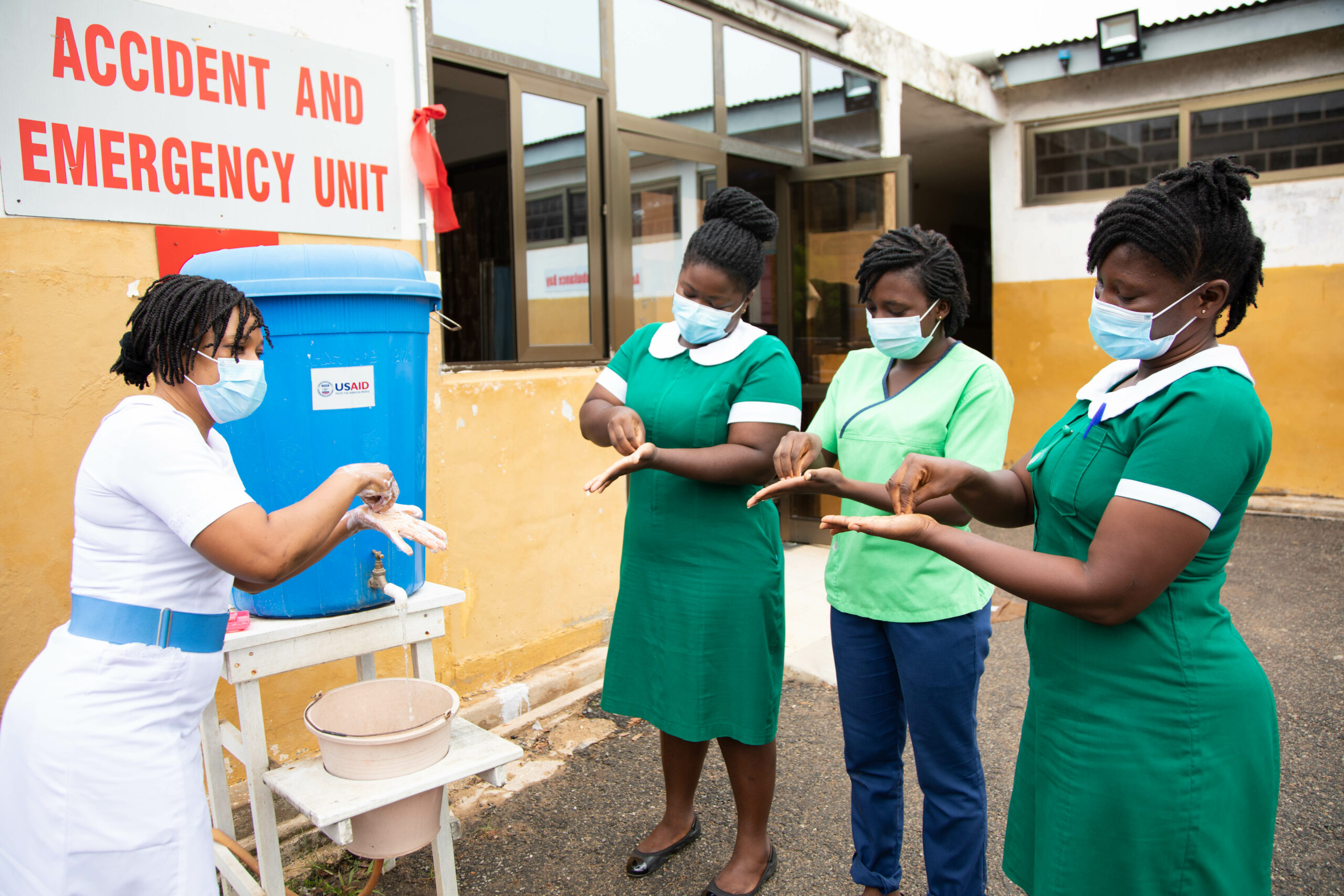
“We learned how to start COVID-19 screening and triaging at the health center, and how to identify clients with COVID-19 symptoms and refer them for testing.”
Juliana and her fellow midwives are confident they can better support expectant and new mothers despite needing to practice social distancing with clients. Juliana started her own community outreach efforts to provide counseling and emotional support to her clients and reassure them that they can safely visit the health center as long as they wear a face mask. “Now our clients do monthly visits to the health center instead of a bi-weekly visit,” says Juliana, “and where necessary, we provide care through the phone.”
Despite overstretched health systems, stay-at-home orders, and fear of virus transmission, Juliana and other midwives are courageously risking their health to bring new lives safely into the world. Thanks to their brave service, 12 women delivered successfully at the Essipon Health Center in January and February 2021.
According to the Impact of Midwives Study,2 by improving the skills and competencies of midwives to increase coverage of midwife-delivered interventions, we have the potential to avert 41 percent of maternal deaths, 39 percent of neonatal deaths, and 26 percent of stillbirths by 2035. The data speaks for itself: We must support and invest in midwives like Juliana. MOMENTUM -supported telemedicine training helps strengthen the capacity of midwives and instill the sense of security needed to safely deliver high-quality care during the pandemic.
This story was written by Emmanuel Attramah from MOMENTUM Country and Global Leadership in Ghana. The project works in tandem with country governments and local nongovernmental organizations to provide targeted technical and capacity development assistance and contribute to the global technical leadership and policy dialogue on improving measurable outcomes for maternal, newborn, and child health; voluntary family planning; and reproductive health care.
Maternal and Newborn Health
More mothers and infants can reach their full potential with increased equitable access to respectful quality health care delivered through public and private providers.
References
- Ghana Health Service. COVID-19 Ghana’s Outbreak response management updates. https://www.ghanahealthservice.org/covid19/
- Nove, Andrea, Ingrid K. Friberg, Luc de Bernis, Fran McConville, Allisyn C. Moran, Maria Najjemba, et al. Potential impact of midwives in preventing and reducing maternal and neonatal mortality and stillbirths: a Lives Saved Tool modelling study. The Lancet Global Health 9: e24-32. https://www.thelancet.com/journals/langlo/article/PIIS2214-109X(20)30397-1/fulltext#:~:text=Relative%20to%20current%20coverage%2C%20universal,be%20saved%20annually%20by%202035.

